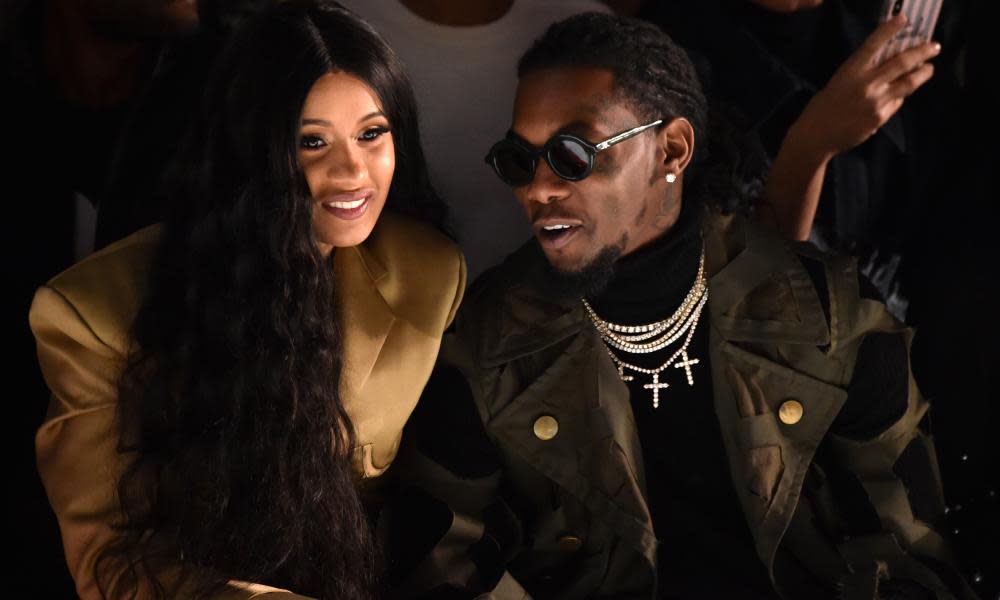How Cardi B joined the fightback against vitriolic fan culture

Familiar outrage spread when the rapper Offset invaded his ex-wife and fellow rapper Cardi B’s headline set at a festival this weekend, begging for her to take him back. Here was a man stealing a woman’s big moment, just like the guy who interrupted his girlfriend running the New York City marathon in November to propose to her. But Cardi had a nuanced response to those castigating Offset: she said no man could ever love their daughter the way he does, so she needs him to be happy – not abused by her fans, who have mistaken vengeance for supporting Cardi, and who then attacked her for apparently defending him.
Who owns a celebrity’s narrative? Pop stars were once remote, but now soap opera arcs create careers. Heroes and villains reign at the box office, and the line between reality and confection means that onlookers – often bored teenagers – treat real people with the same armrest-thumping fervour as they do cinema’s bad guys. The comedian Pete Davidson received such extreme vitriol after he and the singer Ariana Grande split, she was forced to beg her fans to be gentler.
Fandom has ruled this decade’s pop culture, and many stars have weaponised their devotees to achieve supremacy. Even Grande, usually emotionally astute, played to this gallery when she tweeted asking “grown men arguing online” – namely Kanye West and Drake – to “just behave for like a few hours” while she and Miley Cyrus released new music “so the girls can shine”. West criticised her insensitivity when he had been talking about mental health, a response Davidson echoed. She apologised.
Sustaining the soap opera is something media outlets – and the stars themselves – rely upon; a few powerful stars hitting back won’t destroy it. But it is heartening to see them reject this pernicious soft power of entitled fan culture. Artists affirming that there is more at stake than popularity is a significant step towards reconfiguring modern celebrity worship and recognising the humanity at its centre. It’s a necessary reality check.

 Yahoo News
Yahoo News 
